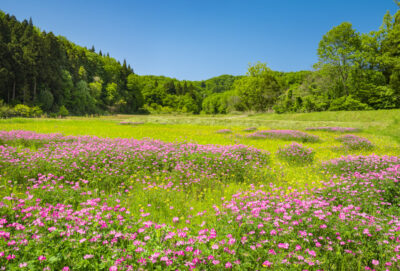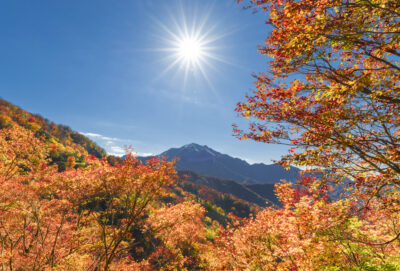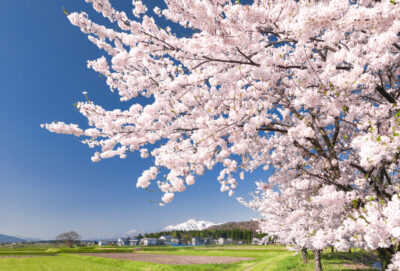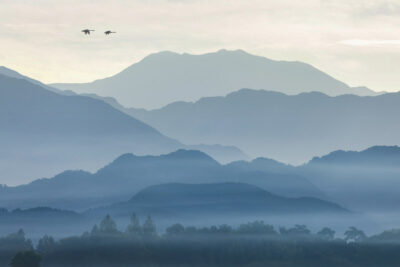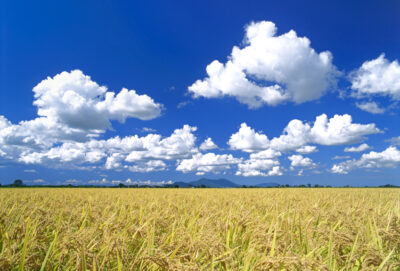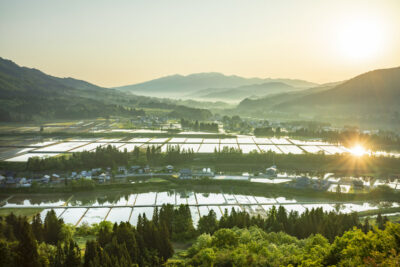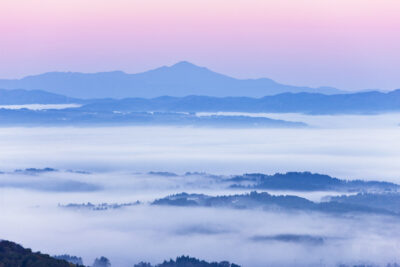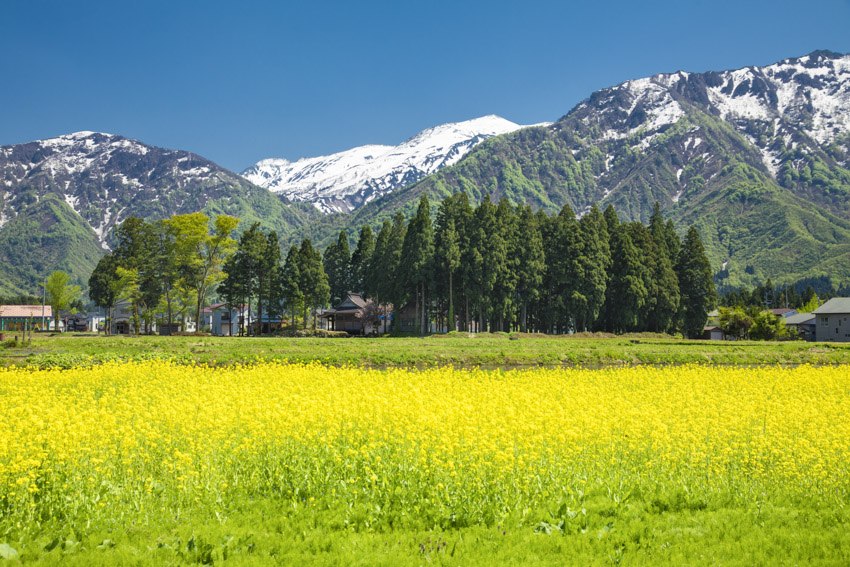
5月の連休が過ぎた頃、南魚沼の登川近くにも、ようやく雪国の遅い春が巡ってきました。重く鉛色だった冬を耐え抜いた分だけ、春の光がいっそう明るく感じられます。里にも新緑が芽吹きはじめ、ほぼ同じ頃、ブナの若葉が萌え出して尾根を駆け上がっていきます。蒼い空の下、黄色い菜の花がまぶしく咲き、残雪という言葉では言い尽くせないほど、山の頂きは目にも心にも鮮やかに映り、これこそが雪国の春の象徴だと感じます。
私の好きな加山雄三さんの歌、「雪どけの流れ…」で始まる「湯沢旅情」の二番の最後に、「君がおもかげなつかしく 思い出深き巻機よ」と歌われています。この歌をご存じない方も多いかもしれませんが、かつて湯沢で仕事をしていた頃、加山さんの取材後の夜体育館で開かれたコンサートで初披露されたこの曲を聴き、初めて聴いた歌なのに不思議と懐かしさがこみ上げたことを今でも覚えています。加山さんは湯沢側から見た巻機山を歌ったのだと思いますが、私は塩沢側から巻機山を眺めるたびに、決まってこの歌を思い出します。巻機山は、私にとってどこか懐かしく、遠い憧れを抱かせる存在なのです。
By the time the Golden Week holiday in May had passed, the late spring of the snow country had finally arrived near Noborigawa in Minamiuonuma. The spring light feels all the brighter for having endured the heavy, leaden winter. New green shoots are beginning to sprout in the villages, and around the same time, young beech leaves are sprouting and climbing up the ridges. Under the blue sky, the bright yellow rapeseed flowers bloom dazzlingly, and the mountain peaks, which cannot be fully described by the term “remaining snow,” appear vividly before both the eyes and the heart, embodying the very essence of spring in a snow-covered region.
In my favorite song by Yuzo Kayama, “Yukidoke no Nagare…” (The Melting Snow’s Flow…), the second verse of “Yuzawa Ryojou” (Yuzawa Traveling Emotions) concludes with the lines, “You are so dear to my heart, the cherished memories of Makigami.” Many may not be familiar with this song, but during my time working in Yuzawa, I attended a concert held at the gymnasium after an interview with Koyama, where this song was first performed. Even though it was the first time I heard it, I still remember the strange sense of nostalgia that welled up within me. I believe Koyama sang about Mount Makihata as seen from the Yuzawa side, but every time I gaze at Mount Makihata from the Shiozawa side, this song inevitably comes to mind. Mount Makihata is a place that evokes a sense of nostalgia and distant longing for me.
EOS5DMarkⅣ+51mm 1/80秒 f:10
©️photo by Nakamura Osamu
